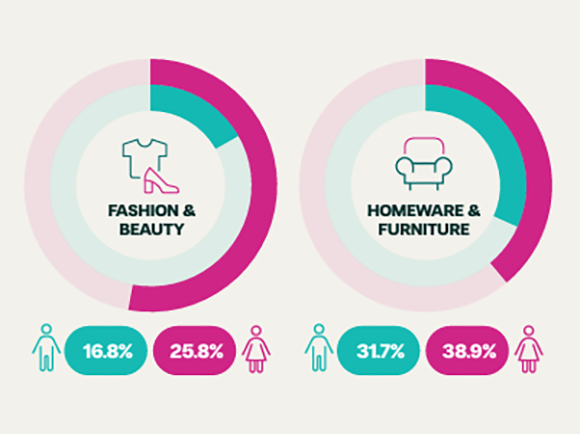Retail Finance in 2023: What’s in store for the sector?

Rising interest rates, regulation and the cost of living crisis have stress-tested the retail finance industry in 2022. But what’s next?
In this article, we look to 2023 and predict the key trends that will influence the retail finance market.
1. Could this be the end of 0% credit?
Interest-free credit sounds too good to be true, and that may well be the case in 2023.
Many BNPL lenders borrow from central banks to fund their loans. The cost of this borrowing depends on the interest rates set by the bank. But interest rates are rising at historic speeds. They currently sit at 3% in the UK, and may go up to 5.5% in the Spring. The cost of lending is therefore increasing, putting pressure on BNPL providers’ bottom lines.
Lenders will have two choices in 2023: pass these costs on to the merchants by charging higher transaction fees, or pass them on to consumers by charging interest rates.
Transaction fees are already high, so raising them again may turn a lot of merchants away from retail finance. The other outcome seems more likely.
This could mean the end of interest-free credit. Lenders may start to charge an Annual Percentage Rate (APR) on their loans.
This won’t be true of all retail finance providers. Lenders with a diverse range of credit products will not be as hard hit. Nor will banks with large customer deposits.
2. Funding will be scarce
Many BNPL firms are fintech start-ups. These businesses tend to operate at a loss, relying on investor funding until they can turn a profit.
But fintech funding is already beginning to slow down as uncertainty creeps into the market. Investment was down in the first half of 2022 compared to 2021. Turbulent trading conditions suggest raising capital will become more difficult in 2023.
Investors are looking to invest in companies with strong fundamentals – something the BNPL sector doesn’t have right now.
Dwindling profits and plummeting valuations have brought the BNPL business model into question. Even the biggest firms are starting to shift their focus from ‘growth at all costs’ to ‘profitability’, to appease investors.
2023 may be a difficult year for BNPL firms. Cash-burning companies will need to raise capital in 2023 – but they won’t find it easy to do this.
3. The competitive landscape will evolve
This year, big name BNPL companies posted huge losses, reduced their market caps and saw declining use of their platforms. Some have speculated the bubble could burst in 2023.
Indeed, several BNPL firms have already started to diversify their business models, suggesting they are focusing on other avenues.
But on the other hand, while some firms are looking beyond BNPL, many other businesses are lining up to get involved.
Apple was the most talked-about entry into the retail finance market this year. They announced their ‘Apple Pay Later’ service, backed by bank Goldman Sachs. In the UK, Natwest and Virgin Money also broke into the market.
These companies benefit from long-standing relationships with customers and significant cash reserves to lend from, making it easier for them to compete. Retail finance does not need to be profitable for these firms – rather, it can help to support their wider business through co-marketing opportunities and by bolstering relationships with retail clients.
What does this mean in practice? It means smaller BNPL firms will likely continue to diversify their business models to stay profitable in 2023, while larger financial firms and Tier One lenders may continue to enter the market. Whichever way the wind blows, it seems news of the death of BNPL has been greatly exaggerated.
4. Regulation will change the game
Perhaps the most seismic change to retail finance in 2023 will be regulation. The UK is leading the global charge to regulate Buy Now, Pay Later and Short-term Interest-free Credit products, with a full schedule of regulation to be announced in mid-2023. Already, the Financial Conduct Authority (FCA) has taken on responsibility for BNPL loans, meaning disputes can be passed on to the Financial Ombudsman. The FCA has also persuaded four BNPL firms to change their contract terms to comply with the Consumer Rights Act, and has incentivised providers to start reporting details of their loans to credit reference agencies. Recently, the FCA sent letters to BNPL chiefs threatening legal action should they fail to comply with financial promotion rules. We expect the FCA to increase pressure as the cost of living crisis deepens in 2023 and more consumers are drawn to unregulated BNPL products. An update to the consultation is expected before the end of this year as the consultation concludes in mid-2023. Divido ultimately believes regulation will be a good thing for the market. Protecting consumers and levelling the playing field for providers will ensure the sustainability of the sector.
The bottom line
One thing that’s certain is the retail finance sector will continue to grow in 2023. A recent report from Juniper Research suggested BNPL will be worth $1 trillion by 2030.
The next year will be a huge test for the industry, as the cost of living crisis deepens and the recession reduces output.
But if 2008 is anything to go by, new business models will emerge as innovators seek to get ahead of the competition. Those with strong fundamentals will not only survive – they will thrive.
You might also
be interested in
Keen to know more?








